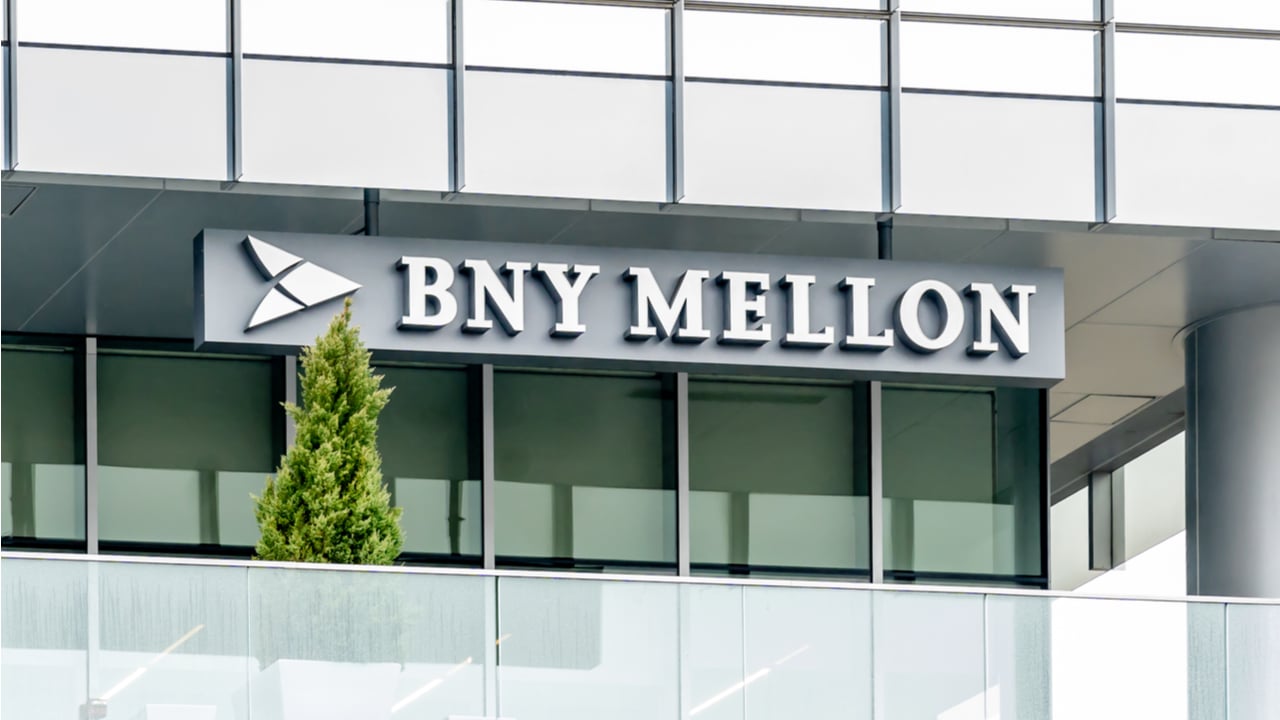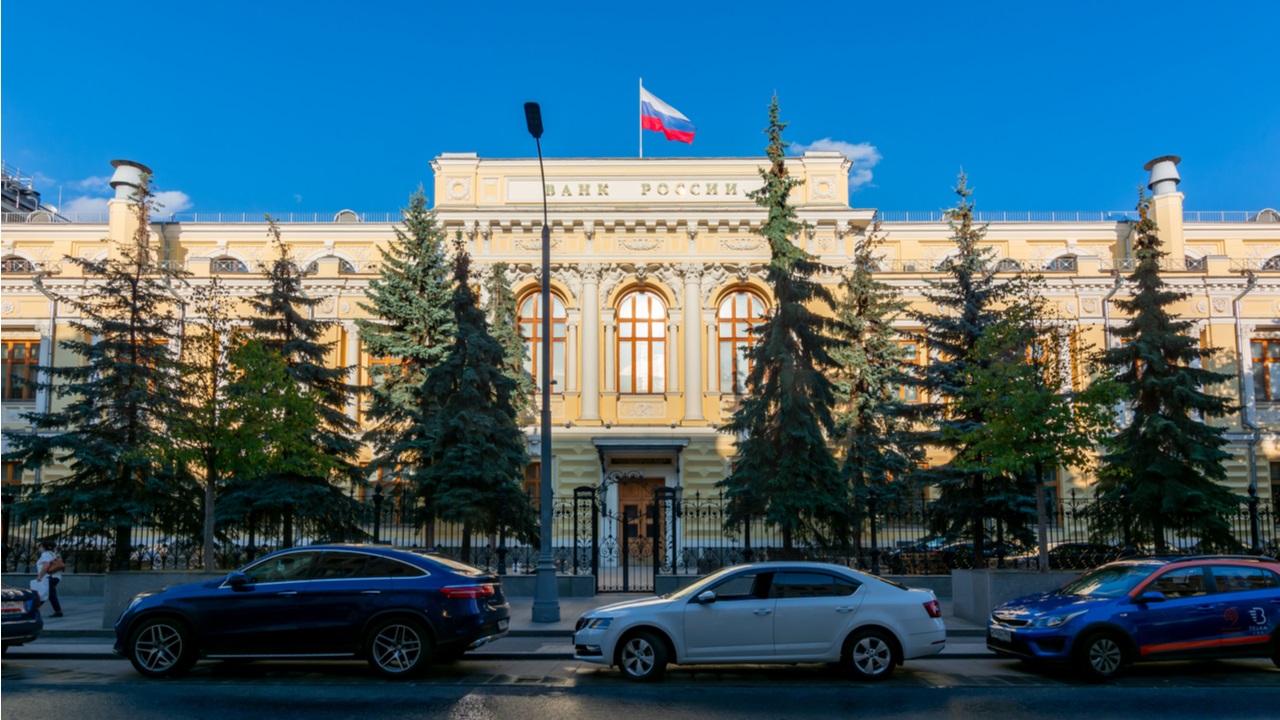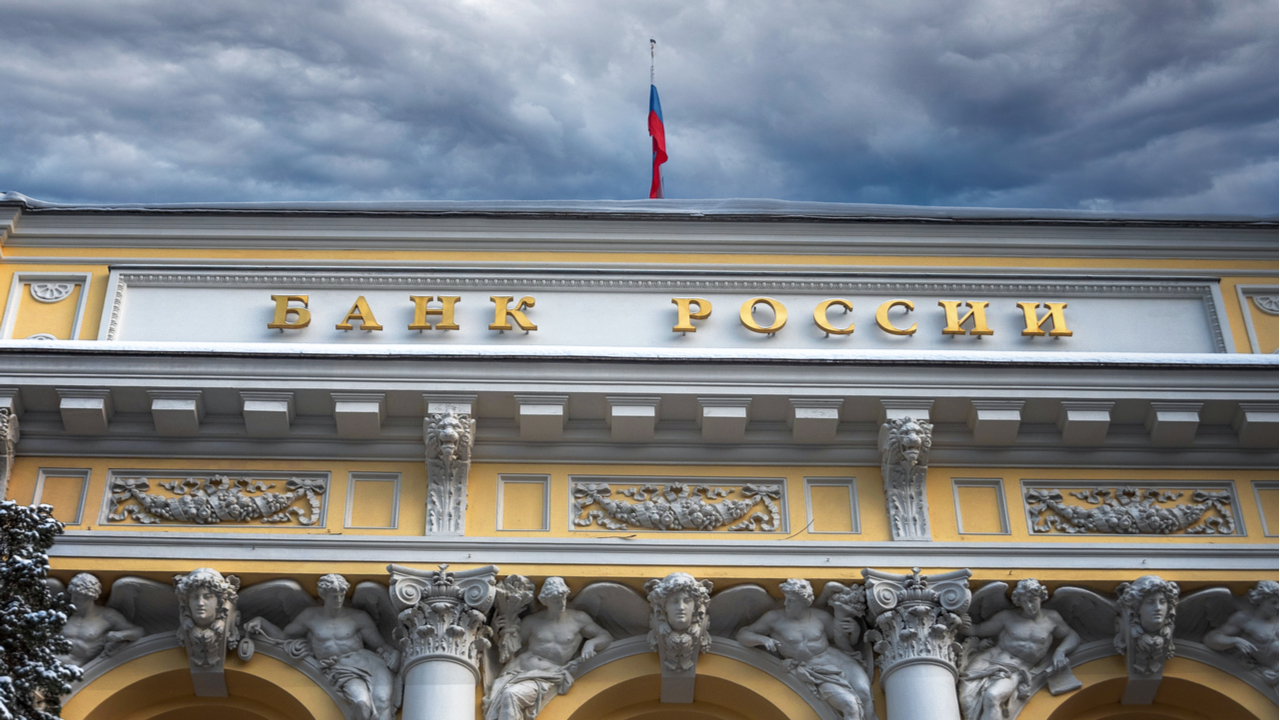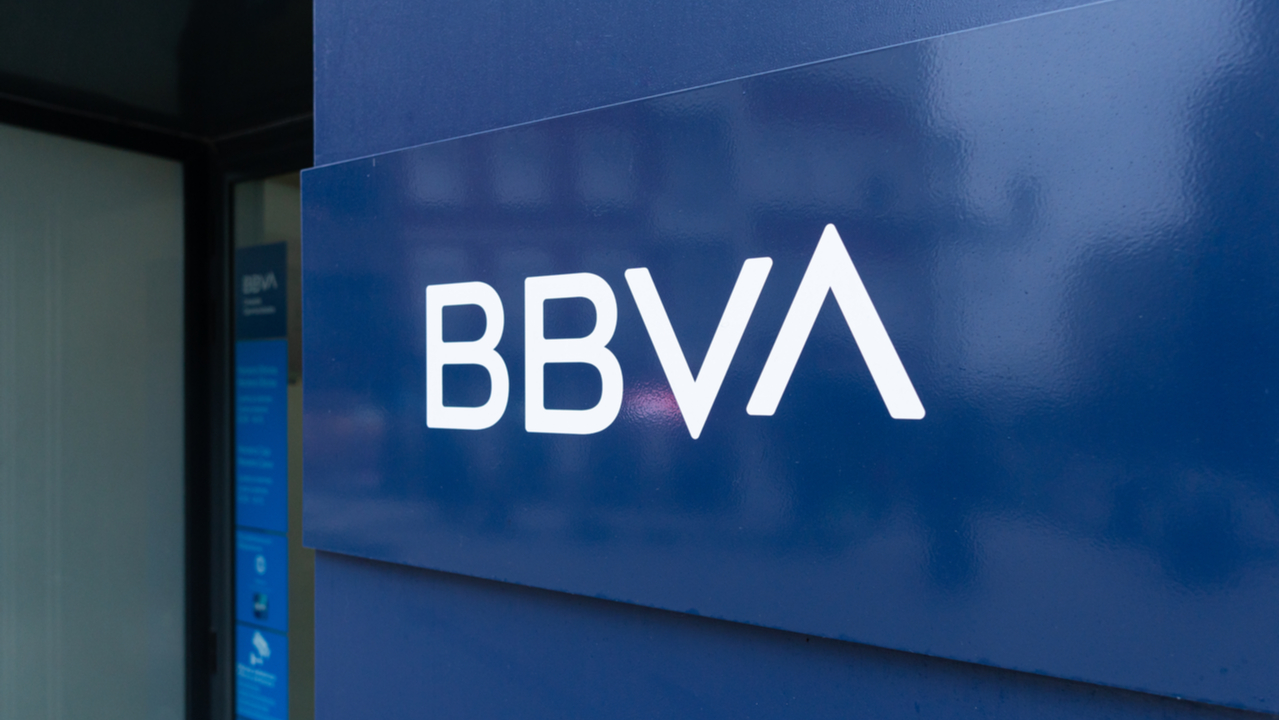 Authorities in Russia are gearing up to amend various pieces of legislation to facilitate the issuing and function of the digital ruble. Officials in Moscow believe this version of the national fiat needs to be regulated separately from other digital forms of money such as cryptocurrencies. Russia Prepares to Trial Digital Ruble, Officials Say CBDC […]
Authorities in Russia are gearing up to amend various pieces of legislation to facilitate the issuing and function of the digital ruble. Officials in Moscow believe this version of the national fiat needs to be regulated separately from other digital forms of money such as cryptocurrencies. Russia Prepares to Trial Digital Ruble, Officials Say CBDC […]
Banca d’Italia and Deutsche Bundesbank shared experiences on distributed ledger technology-based settlements in a workshop.
European central banks ramp up their efforts to utilize distributed ledger technology (DLT), the foundation of blockchain, in central bank money settlements.
Banca d’Italia and Deutsche Bundesbank, central banks of Italy and Germany, respectively, joined forces to work on settlements in central bank money of DLT-based asset exchanges.
The official announcement stressed that the primary goal of the joint workshop was not to use DLT as a replacement for conventional systems. Instead, the initiative aims to complement the current central bank money settlement practices with a programmable trigger mechanism that connects the DLT-based asset, like a tokenized security, and cash to be settled via conventional payment systems.
The proposed system would minimize the counterparty risk for both sides by preserving the delivery-versus-payment mode of settlement, the announcement reads. The programmable trigger would complement the digital euro and serve as a technical bridge between existing payment systems used by Eurosystem central banks and the DLT-based settlement of tokenized assets.
DLT has the potential to usher in new products and services, generate additional revenue streams, reduce the cost of operations and make organizational structures more efficient, said Italian central bank governor Ignazio Visco. He underscored that an infrastructure-level DLT adoption in traditional markets would take time “because of the necessary in-depth investigations and cost and risk assessment.”
Related: European Central Bank announces digital euro advisory group members
“If market participants want to reap the benefits of new technologies like DLT for the settlement of tokenized assets, central banks should support that by enabling the settlement of the responding cash leg in secure central bank money,” said Deutsche Bundesbank President Jens Weidmann. He added:
“The tested trigger solution could well serve the market’s need and keep central bank money in the systems run by central banks. In comparison to creating wholesale central bank digital currency, a trigger solution could be operational in a much shorter time frame.”
Deutsche Börse, Deutsche Bundesbank and Germany’s Finance Agency conducted a pilot test with the participation of Citibank, Barclays, Goldman Sachs, Commerzbank, DZ Bank and Société Générale, bridging traditional finance with distributed ledger technology in March 2021. The German Finance Agency issued a 10-year federal bond via the DLT trigger system and tested securities trading on primary and secondary markets as part of the pilot.
 As authorities in the EU are still discussing union-wide cryptocurrency regulations, a major U.S. bank has reportedly lobbied the Irish government to adopt its own rules for the space. BNY Mellon launched its digital asset business in Ireland this year to provide custodian services to institutional investors. Banking Giant BNY Mellon Calls for Irish Crypto […]
As authorities in the EU are still discussing union-wide cryptocurrency regulations, a major U.S. bank has reportedly lobbied the Irish government to adopt its own rules for the space. BNY Mellon launched its digital asset business in Ireland this year to provide custodian services to institutional investors. Banking Giant BNY Mellon Calls for Irish Crypto […]
The CEO of the British bank believes stablecoins, CBDCs and even NFTs will likely outgrow cryptocurrencies.
Bitcoin (BTC) and other cryptocurrencies have a permanent role in financial markets, but other digital assets like central bank digital currencies (CBDCs) or nonfungible tokens (NFTs) could likely outperform crypto, according to Standard Chartered CEO Bill Winters
Speaking at a Standard Chartered conference call, Winters echoed the “crypto is here to stay” narrative and said there’s a role for non-fiat currencies given the concerns about inflation.
“Broadly, we’ve gone through a long period of low inflation, and we’ve got central banks experimenting in uncharted territory with very, very loose monetary policy,” Winters said, adding:
“It’s perfectly reasonable for people to want an alternative to fiat currency.”
While the debate over fully decentralized cryptocurrencies are more beneficial than administered crypto continues, Winters believes the market will have the final say. “If there’s a role for these instruments in the market, there will be a role for us to support that, always subject to regulatory guardrails,” he added.
Related: Billionaires are backing Bitcoin over gold... but some say Ethereum is even better
Winters’ bank is known for its positive approach to cryptocurrencies and digital assets. Last month, Standard Chartered joined the crypto and digital finance industry membership body Global Digital Finance (GDF) Patron Board. As Cointelegraph reported, the bank will help engage with international regulators, lawmakers and others in the industry to advocate for digital assets as a member of the GDF.
The British bank also reportedly plans to launch a crypto exchange. A report from June claimed that Standard Chartered has partnered with Hong Kong exchange owner BC Technology Group to launch a platform for the U.K. and European institutional market.
Recently, multibillion-dollar private equity firm Thoma Bravo’s co-founder Orlando Bravo expressed confidence in cryptocurrencies, saying, “Crypto is just a great system. It’s frictionless. It’s decentralized. And young people want their own financial system. So, it is here to stay.”
 The scandal around sanctioned crypto broker Suex is growing in Russia where one of the co-founders of the OTC platform has been dismissed from his executive post at a bank. Meanwhile, an anti-drug organization has referred the case to the interior ministry and the central bank, asking authorities to investigate Suex’s connections with financial companies […]
The scandal around sanctioned crypto broker Suex is growing in Russia where one of the co-founders of the OTC platform has been dismissed from his executive post at a bank. Meanwhile, an anti-drug organization has referred the case to the interior ministry and the central bank, asking authorities to investigate Suex’s connections with financial companies […] The Central Bank of Russia has recently expanded its database of financial market players suspected of illicit activities. Several crypto companies have been added to the list along with entities bearing signs of Ponzi schemes, as well as illegal credit organizations and forex dealers. Central Bank of Russia Blacklists Crypto Platforms As part of its […]
The Central Bank of Russia has recently expanded its database of financial market players suspected of illicit activities. Several crypto companies have been added to the list along with entities bearing signs of Ponzi schemes, as well as illegal credit organizations and forex dealers. Central Bank of Russia Blacklists Crypto Platforms As part of its […] Central Bank of Russia is now working with commercial banks in order to delay payments made to digital asset exchanges. The move aims to limit “emotional” cryptocurrency purchases made by “unqualified” Russian investors, a CBR official revealed. The move is likely to affect peer-to-peer and over-the-counter trading platforms. Central Bank of Russia Skeptical of Cryptocurrency […]
Central Bank of Russia is now working with commercial banks in order to delay payments made to digital asset exchanges. The move aims to limit “emotional” cryptocurrency purchases made by “unqualified” Russian investors, a CBR official revealed. The move is likely to affect peer-to-peer and over-the-counter trading platforms. Central Bank of Russia Skeptical of Cryptocurrency […] Mining and trading of cryptocurrencies are illegal in Nepal, the country’s central bank has reminded citizens of the Himalayan nation. The regulator also warned that participating in such activities would entail penalties as per the current legislation. Despite its position, however, the Nepalese have continued to invest in bitcoin, media reports reveal. Engaging in Illegal […]
Mining and trading of cryptocurrencies are illegal in Nepal, the country’s central bank has reminded citizens of the Himalayan nation. The regulator also warned that participating in such activities would entail penalties as per the current legislation. Despite its position, however, the Nepalese have continued to invest in bitcoin, media reports reveal. Engaging in Illegal […]
Bancoagrícola will work with Flexa to accept Bitcoin across the bank’s network for payments like loans and credit cards.
Bancoagrícola, El Salvador’s largest financial institution, is set to boost the country’s Bitcoin adoption policy following its partnership with digital payments gateway Flexa.
According to an announcement by Flexa on Thursday, Bancoagrícola has inked a deal with the crypto payment network to enable Bitcoin (BTC) transfers for the bank’s customers including retail and merchant clients.
As part of the partnership, Bancoagrícola customers can make credit card payments denominated in United States dollars via Flexa or other Lightning Network-enabled wallets like Chivo and Éclair. According to the release, these payments will not attract any additional fees and also cover loans and merchant goods among others.
Flexa recently added support for Lightning payment with the feature reportedly aimed at merchant clients.
Bancoagrícola’s partnership with Flexa is coming on the heels of Bitcoin officially becoming legal tender in El Salvador.
Reports of retailers in El Salvador accepting Bitcoin are becoming quite commonplace on social media with Cointelegraph reporting that McDonald’s outlets in the country are accepting BTC as payment.
Related: El Salvador says merchants must process BTC transactions — Or they may face action
If El Salvador’s Bitcoin adoption policy proves successful, global money service providers like MoneyGram and Western Union may lose up to $400 million per annum, according to the country’s president.
Indeed, remittance accounts for a significant proportion of El Salvador’s gross domestic product — 23% in 2020 alone — with 70% of the population reportedly receiving money from overseas.
Back in August, the Central American Bank for Economic Integration, or CABEI, stated that adopting Bitcoin as legal tender could be positively impact remittances in the region. At the time, the CABEI promised to assist the country in building a technical framework for BTC adoption as well as compliance with international anti-money laundering standards.
El Salvador’s Bitcoin Law is not without opposition as a majority of the country’s population is reportedly against the move. Global financial entities like the International Monetary Fund have also warned against adopting Bitcoin as a national currency.
 Clients of BBVA Switzerland will be able to buy, store, and trade crypto assets with a digital account that comes with a cryptocurrency wallet. The new banking product will be available across the European Union as well as in a number of markets in South America. BBVA Switzerland Account Facilitates Cryptocurrency Investments The Swiss subsidiary […]
Clients of BBVA Switzerland will be able to buy, store, and trade crypto assets with a digital account that comes with a cryptocurrency wallet. The new banking product will be available across the European Union as well as in a number of markets in South America. BBVA Switzerland Account Facilitates Cryptocurrency Investments The Swiss subsidiary […]